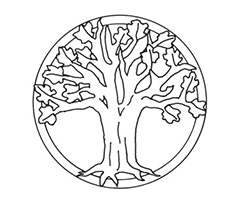Dr. Ashikur Rahman Joarder, Professor of Environment and Energy, Department of Architecture, Bangladesh University of Engineering and Technology (BUET), Dhaka and also Co-Convenor of the Committee on Environment and Sustainable Development, attended the inaugural workshop of the joint project "Transforming the Built Environment Through Sustainable Materials - Bangladesh" led by UNEP and implemented jointly by UN-Habitat and UNOPS, with the main objective of decarbonizing the buildings and construction sector towards 2050 goals, which is funded by German Federal Ministry for Economic Cooperation and Development (BMZ) held on 23/9/2023 at CIRDAP premises. The Project responds to the urgent need to decarbonize the buildings and construction sector by 2050 and is now being implemented in Ghana, Senegal, India and Bangladesh from January 2023 to June 2024. The workshop was focused on stakeholder engagement and the country assessment. During the workshop, Ms. Aziza Usoof, Monitoring and Reporting Manager, UN-Habitat, Sri Lanka, briefed the Project. Dr. Alicia Regodon Puyalto, Senior Sustainability, Infrastructure, Resilience and Inclusion Analyst, UNOPS, presented Country Assessment Tools & Stakeholder Engagement Tool. Prof Joarder advised including representatives of IAB (Architects) in several Project Working Teams on national priorities, spatial and urban planning, construction supply chain, new buildings and existing buildings. In the end, during Open Discussion, in the presence of the Chief Guest, Kazi Wasi Uddin, Secretary, Ministry of Housing and Public Works, Prof Joarder emphasized three essential factors for the successful execution of the Project as follows.
1) Acknowledging and incorporating the existing research and efforts conducted by local organizations and universities related to life cycle analysis (LCA), zero emissions roadmap, and the construction of efficient and resilient buildings.
2) Establishing short-term milestones, such as those occurring every 2 or 5 years, with specific and quantifiable implementation targets to be achieved before 2050 (the shorter, the better).
3) Acknowledging the significant impact architects have on the carbon footprint and emissions of new building designs, it is crucial to equip architects with the essential training and resources to use building simulation and optimization software for virtual assessment before the actual construction commences. An example of such a resource is a digital 'Material Library' that takes advantage of the characteristics of locally sourced sustainable materials. This enables architects to design and evaluate zero-emission buildings (ZEB) effectively. Once construction is finished, the reduction of a building's carbon footprint and emissions becomes an exceedingly difficult, if not insurmountable, task.



